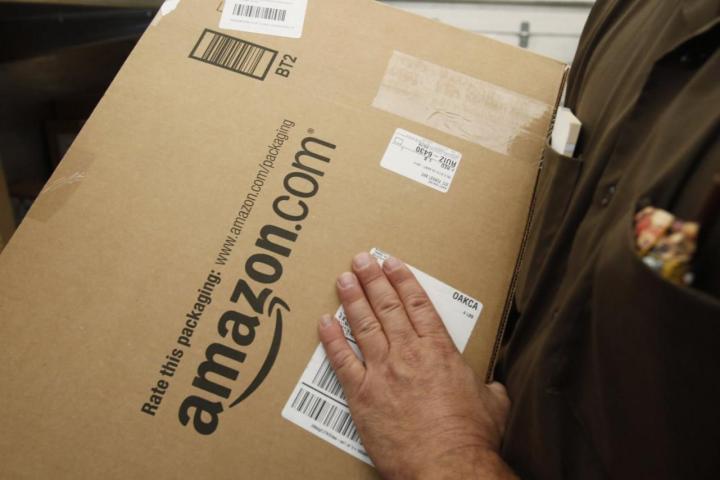
The Wall Street Journal reported Thursday that the company is looking to take on the likes of UPS and FedEx with a so-called ‘last mile’ service taking care of a package’s delivery in the final stages of its journey from warehouse to customer.
The service is reportedly being tested in a number of US cities, including San Francisco, Los Angeles and New York.
The Journal says the new service could help to further pull consumers into its ecosystem, tempting them with same-day delivery and giving them “one less reason to go to physical stores.” It adds that a full-fledged service could include early-morning or late-night deliveries, or at particular times specified by the customer.
A recent Amazon job posting shed some light on the company’s thinking behind the new service.
“Amazon is growing at a faster speed than UPS and FedEx, who are responsible for shipping the majority of our packages,” the ad said. “At this rate Amazon cannot continue to rely solely on the solutions provided through traditional logistics providers. To do so will limit our growth, increase costs and impede innovation in delivery capabilities.”
It added, “Last Mile is the solution to this. It is a program which is going to revolutionize how shipments are delivered to millions of customers.”
Amazon shoppers across the country were hit by shipping delays last Christmas when big-name delivery companies became overwhelmed by the sheer number of packages in their respective systems. The Seattle-based Web firm ended up handing out $20 gift vouchers to affected customers by way of apology, saying at the time that it was “reviewing the performance of the delivery carriers.”
That review looks to be complete, with Amazon’s last-mile delivery system set to take care of at least a part of the delivery process in a bid to limit the chances of future delays. The service could also help the company to better control rising shipping costs, a reason given for the recent subscription rise for users of its Prime service.
Amazon has been rolling out a number of delivery services in several cities in the past year or so, including its new Prime Pantry service just this week, bringing a range of household items to customers’ doors, and Amazon Fresh last summer, involving, as its name suggests, perishable foods.
Try Amazon Prime 30-Day Free Trial



